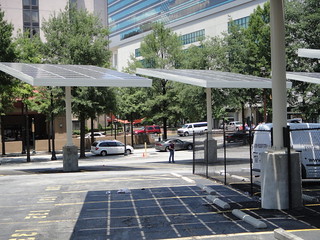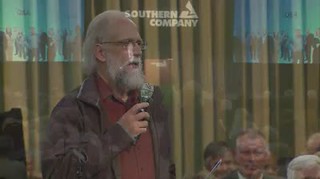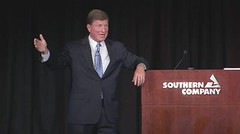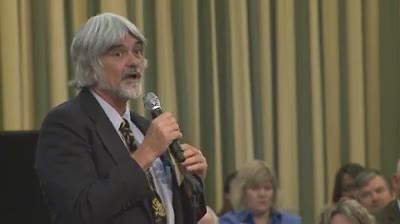F for all three main Southern Company states:
Georgia,
Alabama,
and
Mississippi.
Florida manages a B for rank #23, presumably because
SO only covers part of the panhandle.
 Coincidence?
While
SO’s tiger team studies someday maybe doing something about distributed solar,
the
Georgia Public Service Commission could double solar requirements
on Georgia Power this week.
Coincidence?
While
SO’s tiger team studies someday maybe doing something about distributed solar,
the
Georgia Public Service Commission could double solar requirements
on Georgia Power this week.
You can clearly see those three SO states on this map by GigaOm:
Solar Power Rocks.com asked 19 June 2013 in 2013 State Solar Power Rankings,
“How do we recognize and reward legislatures for admirable solar energy policy while holding them accountable to do better?” Continue reading















